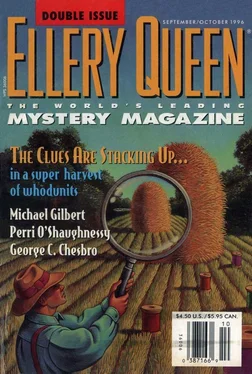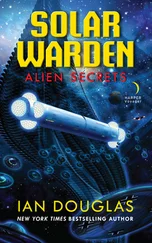Doug Allyn - v108 n03-04_1996-09-10
Здесь есть возможность читать онлайн «Doug Allyn - v108 n03-04_1996-09-10» весь текст электронной книги совершенно бесплатно (целиком полную версию без сокращений). В некоторых случаях можно слушать аудио, скачать через торрент в формате fb2 и присутствует краткое содержание. Город: Dell Magazines, Год выпуска: 1996, Издательство: Dell Magazines, Жанр: Детектив, на английском языке. Описание произведения, (предисловие) а так же отзывы посетителей доступны на портале библиотеки ЛибКат.
- Название:v108 n03-04_1996-09-10
- Автор:
- Издательство:Dell Magazines
- Жанр:
- Год:1996
- Город:Dell Magazines
- ISBN:нет данных
- Рейтинг книги:4 / 5. Голосов: 1
-
Избранное:Добавить в избранное
- Отзывы:
-
Ваша оценка:
- 80
- 1
- 2
- 3
- 4
- 5
v108 n03-04_1996-09-10: краткое содержание, описание и аннотация
Предлагаем к чтению аннотацию, описание, краткое содержание или предисловие (зависит от того, что написал сам автор книги «v108 n03-04_1996-09-10»). Если вы не нашли необходимую информацию о книге — напишите в комментариях, мы постараемся отыскать её.
v108 n03-04_1996-09-10 — читать онлайн бесплатно полную книгу (весь текст) целиком
Ниже представлен текст книги, разбитый по страницам. Система сохранения места последней прочитанной страницы, позволяет с удобством читать онлайн бесплатно книгу «v108 n03-04_1996-09-10», без необходимости каждый раз заново искать на чём Вы остановились. Поставьте закладку, и сможете в любой момент перейти на страницу, на которой закончили чтение.
Интервал:
Закладка:
“But you stayed in Chinatown for a time?”
“I was watching the celebrations. I knew nothing about the...” Her voice broke and she closed her eyes tightly.
Dorj stared at the Ferris wheel, recalling it in summer, filled with children excited to be carried just a little way up into that blue sky.
“I didn’t tell you the whole truth,” said Song abruptly. “I said Father was ill. He was dying.”
Dorj looked at her questioningly.
“He’d told me,” Song continued. “We’d made all the arrangements. That was just before he sent Myron away. I wouldn’t have put up with it otherwise. I would’ve married Myron on the spot. But I knew Father wasn’t himself. And how could I— Oh, if he’d only given us his blessing before—”
She began to cry and leaned against Dorj’s shoulder. He put his arm around her, uncomfortably.
Dusk was falling when Dorj and Ariunbat reached the Tuul River bridge on what had once been Marx Avenue. Ariunbat stopped and climbed off his bicycle. “The restaurant’s in the next block,” said Ariunbat, who had invited Dorj to discuss the case over dinner. “It’s excellent. I go there often.”
Ariunbat glanced at his watch, illuminated by fitful greenish light from a sputtering streetlamp, and leaned against the balustrade. The river was frozen, except where it eddied around the piers of the bridge. He said, “You can see the lights of the city from here.”
“Have you pulled in those two brothers?” asked Dorj.
“Not yet.”
“I think you should abandon Chi’s family and look a little closer to home.”
Ariunbat was incredulous. “Surely you don’t mean... No, I can’t see a little fragile flower like her being involved in patricide.”
“I wasn’t thinking of Song.”
“The engineer— Young?”
“Yes. I find myself thinking about the conversation he overheard.”
The captain nodded, his double chin trembling. “And...?”
“Red is the color of joy.”
Ariunbat looked at Dorj as if the inspector had gone mad.
“In China, red symbolizes joy,” explained Dorj. “Chi’s sons would hardly be wearing red so soon after their father’s death.”
“Do you mean Young made the conversation up?”
“Not necessarily the conversation itself.”
“But if it wasn’t the sons—”
“Has it occurred to you that Myron Young sounds a lot like ‘mei ren yu’?”
“Well, it does when you say it, yes. So what?”
“The mermaid symbols in the notebook,” said Dorj. “They might have been a sort of code for Myron Young.”
“But why?”
“I’m sure you know that the Dollar Shops were highly profitable when they were actually dollar shops — when they only accepted foreign currency. Most of them were put out of business when our new leaders decided to force them to accept tugriks instead.”
“That’s true.”
“And it wasn’t so long after that decree that Mr. Liu put you onto an embezzler.”
“So?”
“Well, there wasn’t any embezzler. I suspect Liu tinkered with the books to try and stay afloat and called you with that embezzler story as a smokescreen. Unfortunately, you apprehended a suspect. Young must’ve found out all about it somehow. He was blackmailing Liu. Maybe the mermaid symbols marked dates for payments. In which case they were due to meet on the day Liu was murdered. I’ll bet the Dollar Shop off the alley where Liu died was a store he owned.”
Ariunbat pushed his bulk away from the balustrade. “But why would Young kill a man he was milking like that?”
“Maybe he was afraid he’d be found out. Maybe he wanted everything at once. He got impatient for the inheritance he planned to get his hands on by marrying Liu’s daughter.”
“And where did he hear about this inheritance if it wasn’t from those boys?”
“Song told me Mr. Liu was dying. She and her father discussed funeral arrangements. I imagine Young came calling at the ger and overheard — and misunderstood — considering he knows only a little Mandarin.”
“Misunderstood? But what about the ‘black pearl,’ the paper money, the inheritance?”
“A black pearl is part of Chinese funeral rites. The paper money that was supposedly an inheritance is the paper money they burn for the dead.”
The streetlight buzzed and flickered. Dorj thought he could see surprise in Ariunbat’s blue eyes. Eyes that suddenly reminded him of something he’d forgotten, a connection he’d failed to make.
The crunch of footsteps on the icy roadway made Dorj turn. It was Myron Young.
“Never was much good at foreign languages,” said Young. “Hell of a thing. Still, the old man must’ve left something.”
Dorj said, “Are you proposing to shoot me with the gun you used to kill Liu?”
“That’s not a bad idea,” said Young. “But, no. We had something different in mind.”
“As you recall, our embezzler, Mr. Chi, jumped into the Tuul,” said Ariunbat, and Dorj felt a meaty arm close around his throat.
The inspector’s feet left the ground as Ariunbat swung him toward the balustrade. Dorj glimpsed a patch of swirling black water surrounded by snow-covered ice. Then a gunshot cracked the silence and Ariunbat crumpled.
Dorj, always prepared, even while vacationing, scrambled free of the dying man’s grasp and aimed his police revolver at Young who raised his hands obligingly.
“I’m an American,” said Young. “I’ve got a right to a lawyer. What time is it in Houston?”
“Yes, they were both blackmailing your father,” Dorj told Song. “Ariunbat had met Young in Olgii, during one of Young’s previous trips to the silver mine there. Ariunbat’s a Kazakh — he has the look, the blue eyes. After he was transferred to Ulaan Baatar, he and Young must have gotten together. The conversation probably turned, naturally enough, to your father’s embezzler. Ariunbat had the doctored records and his police investigations, Young had some business smarts. Between the two of them they figured out what was going on and decided to take advantage.
“When Young misinterpreted the conversation about funeral arrangements, their plan changed. They wanted it all at once. They also wanted to pin the murder on Chi’s sons, but it seemed to me Ariunbat was a little too quick to pretend to connect them with the crime.”
“My father was horrified when Chi died,” said Song. “He never expected that. I’m sure he intended to tell Ariunbat not to press charges.”
“That is probably true,” said Dorj, who knew from experience there was no predicting what people might do when it came to money.
He stood with Song and members of Liu’s family on the junction of two temporarily unnamed streets. Song, dressed in funeral white, blended in with the freshly fallen snow that gave even Ulaan Baatar a sparkling sheen of promise.
Song’s eyes were watery. But she was remarkably calm. No doubt she had been steeling herself for her father’s imminent death for weeks. It had come only a bit sooner, and much differently than she’d expected. And, Dorj thought ruefully, the gunshot had been kinder in the end than cancer would have been. But he kept that to himself.
Mr. Liu’s funeral procession came down the street, the white-draped coffin followed by mourners, all in white, bearing white banners inscribed with the character for “life.” Some of the onlookers threw paper money into the cold air.
When the procession had passed, Dorj said, “I won’t be able to come to the cemetery. My plane will be leaving and — well — you have to catch flights when they have the fuel to make them.”
“Thank you,” said Song.
“Maybe next time I’m in Ulaan Baatar, you might like to see a play,” said Dorj, realizing the inappropriateness of the remark even as he spoke. But the girl nodded.
Читать дальшеИнтервал:
Закладка:
Похожие книги на «v108 n03-04_1996-09-10»
Представляем Вашему вниманию похожие книги на «v108 n03-04_1996-09-10» списком для выбора. Мы отобрали схожую по названию и смыслу литературу в надежде предоставить читателям больше вариантов отыскать новые, интересные, ещё непрочитанные произведения.
Обсуждение, отзывы о книге «v108 n03-04_1996-09-10» и просто собственные мнения читателей. Оставьте ваши комментарии, напишите, что Вы думаете о произведении, его смысле или главных героях. Укажите что конкретно понравилось, а что нет, и почему Вы так считаете.












